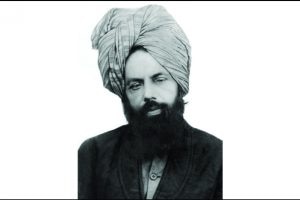By Fazal Ahmad, UK
What is Summer Solstice?
Friday 21st June 2019 marks the UK’s annual Summer Solstice or midsummer, the longest day of the year when the Sun is in its highest position in the sky. After this date, the days start getting shorter again. Many pagans celebrate this occasion with rituals and festivals at sites such as Stonehenge where for thousands of years, ancient people marked the location of the Sun at this point using stones and other features as a key date in their calendar related to agriculture and other functions.

Celebrations across the world
The summer solstice is celebrated across the world in different ways. In Iran, Tirgan this is celebrated by dancing, reciting poetry, and serving traditional foods. In China, there is a dragon boat festival and across Europe, there are similar commemorations to those at Stonehenge where, on this day, the Sun appears to rise above the Heel Stone. The event itself can be witnessed from the centre of the site.
Significance of the Astronomical Events
These various astronomical events such as the Solstice or Eclipses that remind us of how insignificant we are and that there is a greater set of forces at work in the Universe beyond our reach or imagination. It also prompts people of faith to acknowledge their Creator, Who put the planets in orbit, set the earth in rotation around the Sun, and put in place the various gravitational and other forces that we experience here on Earth.

Islamic Practice
In Islamic practice however, these celestial bodies are not a focus of worship, but merely markers for key events. Islam uses the Lunar Calendar, which means that such events are not tied to specific dates in the year, but rather rotate around the year. For Muslims then, the focus is more on the creative force and our humble place in the Universe, rather than the distraction of the celestial objects and the season itself.
About the Author: Fazal Ahmad is Editor of the Comparative Religions section of The Review of Religions. He has been on the Editorial Board of The Review of Religions since 1993. His special areas of interest are comparative religion, Christianity and archaeology.
Also Read Ancient Sun Worship by the same author.




[…] Summer Solstice: History and Traditions Around the World […]